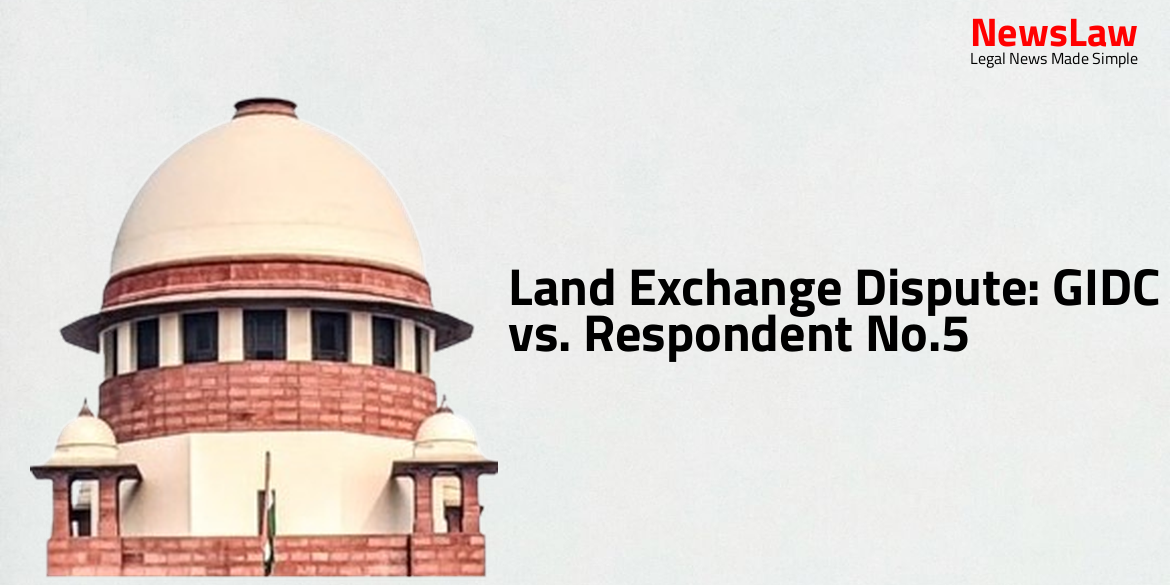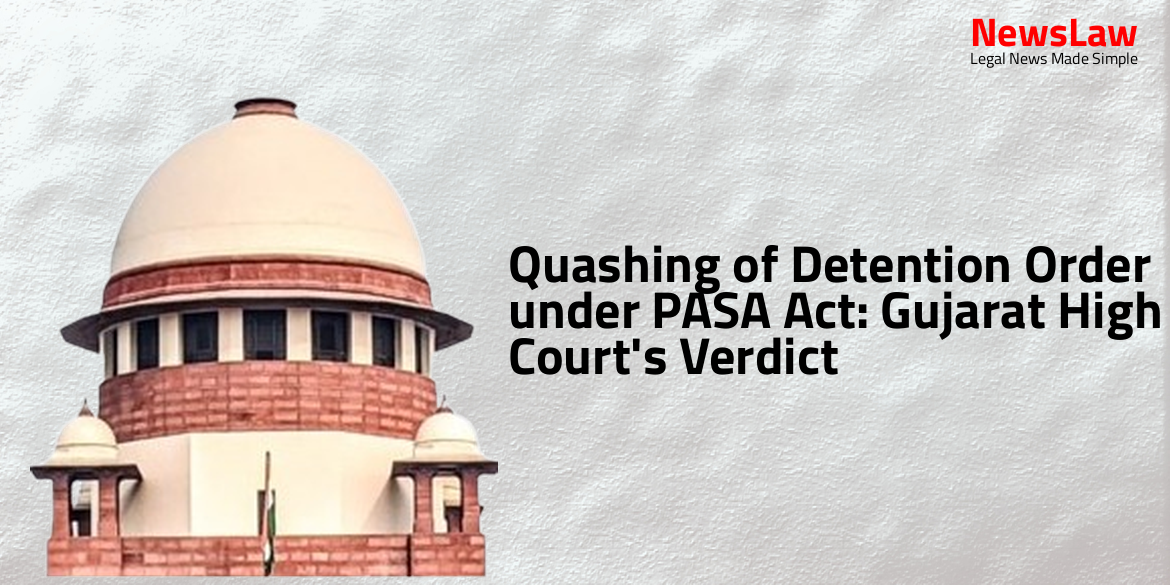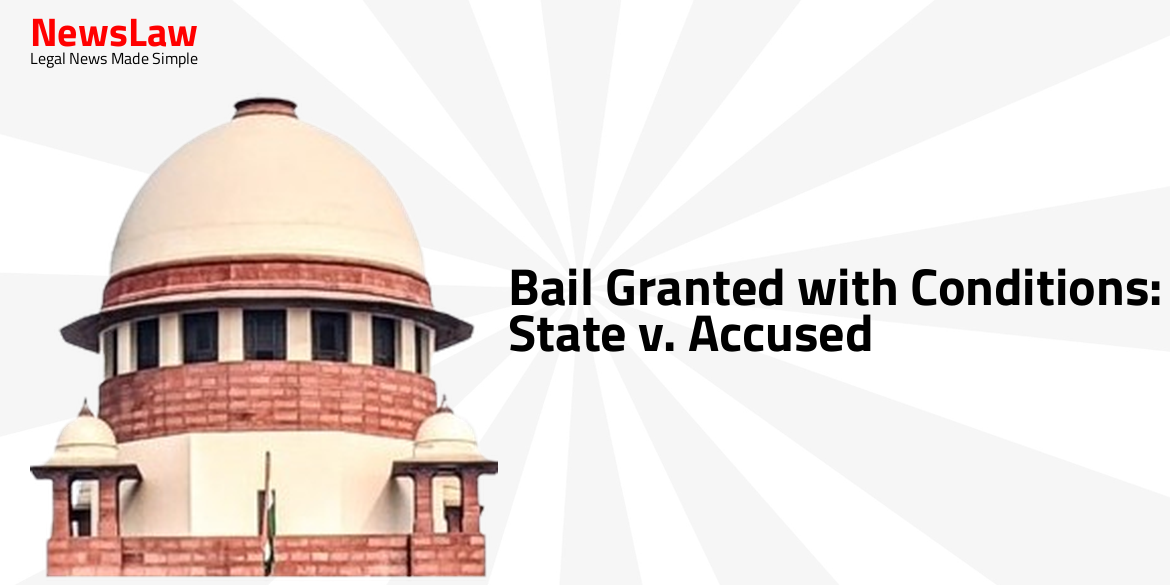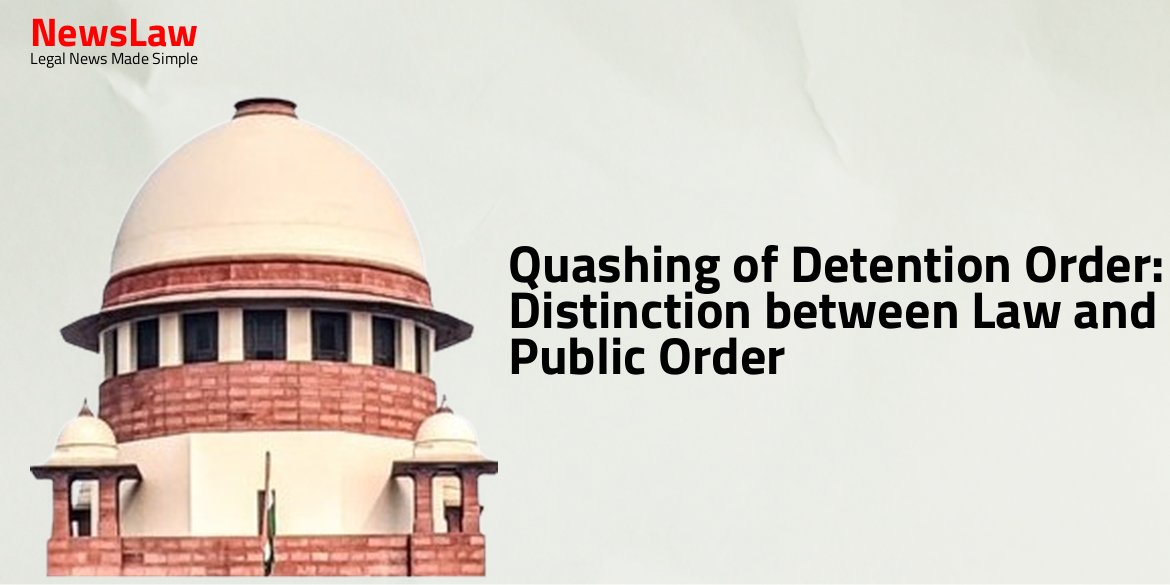The Gujarat High Court has passed a significant judgement in the case of land exchange between GIDC and Respondent No.5. The dispute involved the exchange of industrial plots for agricultural lands, raising questions of legality and compensation. The Court’s decision sheds light on the complexities of land acquisition and exchange processes, highlighting the importance of proper procedures and fair compensation for landowners. Learn more about the details and implications of this high-stakes legal battle.
Facts
- The respondent No.5 transferred 9 plots to different companies, including respondent No.6, with all approvals and payment fulfilled.
- GIDC exchanged 34,743 sq.mtrs of agricultural land in Sarigam for 30,000 sq.mtrs of industrial plots within the same location.
- No financial transactions were involved in the exchange between GIDC and respondent No.5.
- The agricultural lands were deemed as holdings of the original owners by the Agricultural Land Ceiling Authorities.
- GIDC suffered a loss in the earlier acquisition and found the exchange to be in its best interest.
- The lands exchanged were mutually agreed upon, and legal opinions were sought at various stages.
Arguments
- 20 plots were proposed to be allotted by GIDC, endorsed by Vice Chairman and Managing Director
- Exchange of lands proposal was approved by GIDC considering complexity and cost
- No infirmity in decision of Vice Chairman and Managing Director after evaluation of relevant factors
- Allotment made in lieu of compensation for lands utilized by GIDC
- Compensation under Act 2013 with solatium and interest estimated to be higher than sale price of plots
- The procedure under the 2013 Act would have resulted in time and expenditure being incurred by the GIDC.
- There was a condition placed on the land allotted in exchange by owners for non-industrial use, requiring the owner to pay transfer fees and other charges as per the policy.
- The GIDC levied and collected charges at a rate of 30% from the respondent No.5 for non-utilisation, as per a circular dated 22.6.2020.
- The valuable plots of the GIDC sold in the 2021 auction fetched approximately Rs. 43,15,80,000/-, resulting in a benefit to the GIDC of more than 2.5 crores.
Analysis
- The decision to exchange industrial plots for agricultural lands by GIDC is not legally erroneous as the lands would have been acquired under the Land Acquisition Act if owned by original owners.
- The cost incurred by the respondent in obtaining Non-agricultural permission post the exchange is irrelevant.
- GIDC developing government lands for industrial purposes is not illegal.
- Compensation under the Act 2013 is not applicable as GIDC did not enter private lands illegally.
- Exchange of fully developed industrial plots for underdeveloped agricultural lands was impermissible.
- The transfer fees collected by GIDC for plot transfers are disclosed.
- GIDC’s exchange decision deemed baseless, false, and misconceived by the petitioner.
- The exchange aimed at public interest and benefited GIDC.
- Possession of agricultural plots was with GIDC, developed for industrial purposes.
- Allotment of industrial plots without proper Board authorization was not within GIDC’s authority.
- Suspected collusion between respondent and GIDC officers in the allotment process.
- GIDC should have compensated landowners for the developed plots with the cost of development.
- The process of allotment of industrial plots to the respondent had inherent flaws.
- GIDC should have valued and compensated for undeveloped plots exchanged for industrial ones.
- Respondent profiteering by selling allotted industrial plots to a third party.
- The GIDC’s process of exchange was not compliant with its jurisdiction.
- The State Government has authority over land disposal by the Corporation.
- Allotment of industrial plots should have been proportional to the cost of agricultural lands exchanged.
- Respondent acted as a middleman for industrial plot allotment.
- Valuation report on allotted industrial plots indicates significant value.
- The GIDC failed to follow proper procedures in the allotment process.
- GIDC should have compensated landowners for the agricultural plots converted into industrial plots.
- Process under the 2013 Act would have been more onerous for GIDC.
- Lack of documentation regarding respondent’s purchase of agricultural lands raises doubts.
- Consideration of auction or compensation to original owners should have been made by GIDC.
- Legal opinion sought by GIDC based on wrong premise regarding compensation.
- The allotment process lacked transparency and violated regulations.
- Subsequent purchaser of industrial plots from the respondent has not utilized the plots yet.
- GIDC’s utilization of the government lands for industrial development was legal as per recorded ownership status.
- The Managing Director and Vice Chairman of the Corporation are appointed by the State Government as per the Act, 1962.
- The Corporation has the power to acquire and hold property and transfer it through various means as deemed proper by the Corporation.
- The Corporation consists of twelve Directors as per Section 4(1) of the Act, 1962, including official and nominated Directors.
- Functions and powers of the Corporation are detailed in Sections 13 and 14 of the Act, 1962.
- The Corporation is empowered to establish and manage industrial estates and develop industrial areas selected by the State Government.
- The decision to dispose of any property must be made by the Corporation as a body corporate.
- In cases where land cannot be acquired by agreement, the Corporation can request the State Government to acquire it under relevant laws.
- Section 32 allows the State Government to place lands at the disposal of the Corporation under agreed conditions.
- All permissions and documents of the Corporation must be authenticated by the Managing Director or an authorized Officer.
- The GIDC is designated as a local authority for the development of industrial areas and estates in Gujarat.
- No industrial unit has been set up on the plots-in-question.
- Respondent claims to be the bona fide purchaser of specific plots out of the total industrial plots allotted.
- No clarity on other purchasers of the industrial plots allotted to the respondent.
- No encumbrance found on the industrial plots allotted to the respondent.
- The allotment of industrial plots to the respondent suffers from grave error of law and mala fides.
- The exchange deed was signed without a decision from the Board of the Corporation.
Decision
- Fresh consideration into the claim of respondent No.5 to be made by the Board of the Corporation considering all relevant factors mentioned in the order.
- The Board is directed to make this consideration expeditiously, preferably within four weeks.
- The petition in the nature of Public Interest Litigation is allowed.
- A prayer to stay the operation of the judgment made on behalf of Respondent No.5 is rejected based on the reasoning provided.
- Illegal allotments made by GIDC officers on a specific date are canceled.
- Writ petition allowed with the condition that compensation claim of respondent No.5 for specific agricultural plots be handled as per the observations given.
- Pending Civil Applications are disposed of accordingly.
Case Title: SATYAJEET KUMAR Vs. STATE OF GUJARAT
Case Number: R/WPPIL/94/2022



